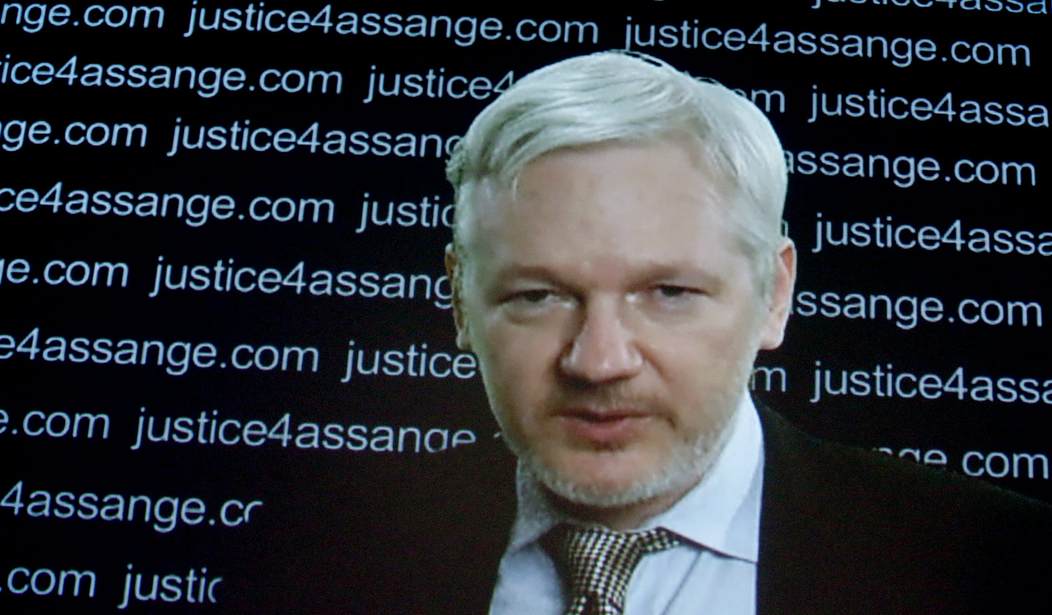There have been rumors and speculation for years that Julian Assange, founder of Wikileaks, is a Russian operative, paid by Moscow to spread concern and chaos in the United States. It’s even been said that much of the information divulged in the DNC emails were funneled to Assange by Kremlin higher ups.
Assange has denied the charge but isn’t it just a little too convenient that Assange is able to get all this hacked information from western governments but never manages to receive any leaks about the Russians?
A report in Foreign Policy magazine says that Assange actually had access to thousands of documents from the Russian interior ministry during the 2016 American presidential campaign, but refused to release them.
In the summer of 2016, as WikiLeaks was publishing documents from Democratic operatives allegedly obtained by Kremlin-directed hackers, Julian Assange turned down a large cache of documents related to the Russian government, according to chat messages and a source who provided the records. WikiLeaks declined to publish a wide-ranging trove of documents — at least 68 gigabytes of data — that came from inside the Russian Interior Ministry, according to partial chat logs reviewed by Foreign Policy.
The logs, which were provided to FP, only included WikiLeaks’s side of the conversation.
“As far as we recall these are already public,” WikiLeaks wrote at the time.
“WikiLeaks rejects all submissions that it cannot verify. WikiLeaks rejects submissions that have already been published elsewhere or which are likely to be considered insignificant. WikiLeaks has never rejected a submission due to its country of origin,” the organization wrote in a Twitter direct message when contacted by FP about the Russian cache.
(The account is widely believed to be operated solely by Assange, the group’s founder, but in a Twitter message to FP, the organization said it is maintained by “staff.”)
In 2014, the BBC and other news outlets reported on the cache, which revealed details about Russian military and intelligence involvement in Ukraine. However, the information from that hack was less than half the data that later became available in 2016, when Assange turned it down.
“We had several leaks sent to Wikileaks, including the Russian hack. It would have exposed Russian activities and shown WikiLeaks was not controlled by Russian security services,” the source who provided the messages wrote to FP. “Many Wikileaks staff and volunteers or their families suffered at the hands of Russian corruption and cruelty, we were sure Wikileaks would release it. Assange gave excuse after excuse.”
The Russian cache was eventually quietly published online elsewhere, to almost no attention or scrutiny.
No one knows if Assange is a Russian agent but the “excuses” he gives for not posting the Russian info ring a little hollow.
Approached later that year by the same source about data from an American security company, WikiLeaks again turned down the leak. “Is there an election angle? We’re not doing anything until after the election unless its [sic] fast or election related,” WikiLeaks wrote. “We don’t have the resources.”
Anything not connected to the election would be “diversionary,” WikiLeaks wrote.
“WikiLeaks schedules publications to maximize readership and reader engagement,” WikiLeaks wrote in a Twitter message to FP. “During distracting media events such as the Olympics or a high profile election, unrelated publications are sometimes delayed until the distraction passes but never are rejected for this reason.”
Given that it was front page news at the time that the Obama administration believed Russia hacked the DNC, it’s hard to imagine a story that would generate more interest than one involving a leak of massive amounts of Russian government data.
The problem is that in Assange’s subjective view, information that might have, for example, confirmed that the Russian military was heavily involved in the fighting in Ukraine was essentially buried. News like this could have put a lot of pressure on Putin and probably have led to even more sanctions.
Assange has published millions of pages of documents that have been extraordinarily harmful to the US. The day he posts documented information just as harmful to Russia is the day I believe him when he says he’s only after “transparency.”










Join the conversation as a VIP Member